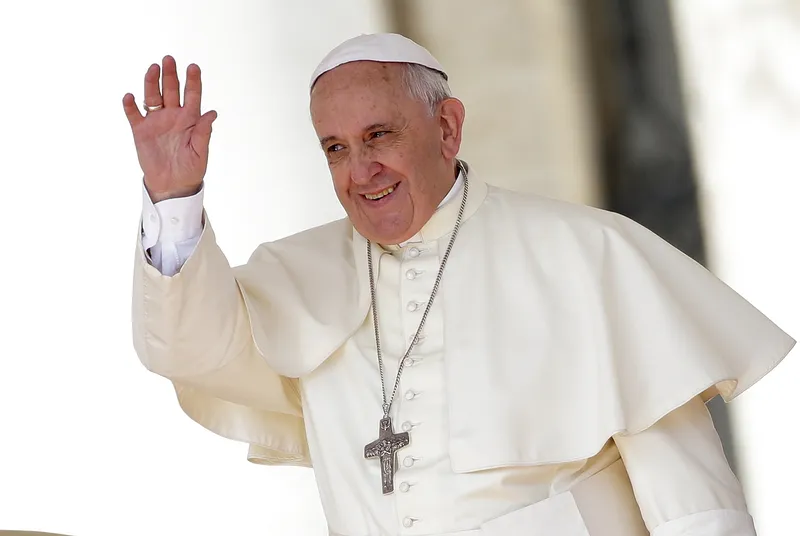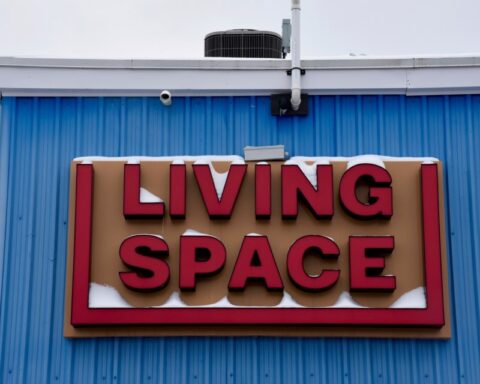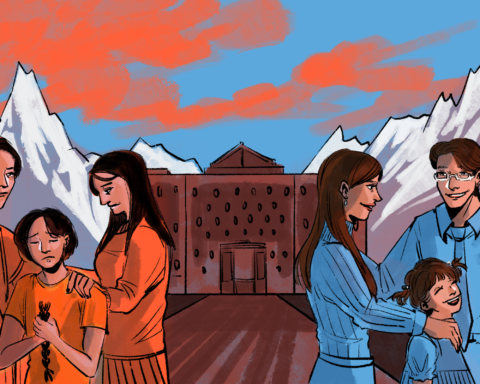Publisher’s note: This story has been updated to revise references to Vannary Kong’s personal affiliations and reproduce verbatim her comments to the reporter. We are sorry for the inaccuracy in our reporting.
It has been a month since Pope Francis left Canada after apologizing for the Catholic Church’s role in residential schools after so many years of silence and denial, and there is still no concrete plan to make reparations or provide more resources to Indigenous communities.
Over the past few years, there have been many apologies to different communities, from the police brutality on the Black community to the Asian community for Asian hate crimes after hysteria behind the COVID-19 pandemic.
What did yet another apology without concrete actions really mean? What’s the path forward in a country that is undergoing rapid demographic change thanks to immigration?
The answer to what’s next, advocates say, is dependent on continuing pressure on the church and other institutions to make real changes.
And that pressure should come, advocates say, through building strong solidarity among marginalized groups (including Blacks and immigrants of colour), to combat systemic oppression.
“I don’t believe a single word of his [Pope Francis] apology,” says Trey Robinson, an Afro-Ojibwe photographer. “Now all of a sudden, you care?”
Kennedy Aliu, a Nigerian international development and law student at Oxford University, points to the headdress that Pope Francis wore as an example of how the apology is more a spectacle and symbolic, rather than a genuine attempt at reconciliation.
“It is a way for them to protect their public image,” Aliu says. “That does not mean they truly believe in the message they are presenting.”
Plan for change
An apology means nothing when there is no concrete groundwork to it. That is why many marginalized communities are tired of hearing it.
“I don’t like apologies,” says Aliu. “It is very easy to say sorry.”
Aliu says that actions speak louder than words, and when there is inaction after the apology, or even a contradiction of the message by actions such as voting for policies that make it worse, the words become nothing but lies.
“How can you say that you care about the issues when you are an active participant in my dehumanization?” Aliu asks.
Vannary Kong is an Asian-American and a parishioner of the Saint Raphael’s Catholic Church. Although she herself was rescued by the Catholic church, she does also recognize their wrongdoings. She talks about how these apologies from politicians do not paint the full picture.
“They leave out key pieces of history,” says Kong. “And if these are the institutions that are supposed to be teaching the future generations, potentially this history might be lost.”
She says that sometimes politicians censor the full truth because it may be difficult to acknowledge the harsh realities of what happened.
She also mentions how it is also missing a sense of accountability. If apologies do not come with a full historical truth and a sense of real remorse, it could turn into a form of cultural genocide.
“As citizens of democratic nations, [it’s about] making sure they are voting for leaders that are saying what they are saying and holding them accountable,” says Kong.
Robinson says rectifying the problems in the Indigenous communities has always been a talking point, especially during election time. He remembers watching debates where they would dedicate segments to the Indigenous issues, where political leaders would discuss what they would do to help. But as Robinson says, nothing came out of it.
“I remember [Prime Minister Justin] Trudeau promising during the first election that he would be there for us,” he says. “A decade later, and things are still the same.”
For Robinson, real plans would include reparations for residential school survivors and resources for Indigenous communities dealing with poverty and mental health issues. He says both the Canadian government and the Catholic Church should work in conjunction to make this happen, as they have the funds.
However, Robinson has very little faith that this will happen.
Recently, Trudeau nominated Michelle O’Bonsawin, an Indigenous woman, to the Supreme Court of Canada. As historical and symbolic this milestone is, until there are plans that are actually being put in place to create change, the skepticism around the genuineness of the intentions of people of power will always be there.
Power to the people
With a constant cycle of inauthentic apologies and being misled with broken promises, how do we change it? Aliu says it starts with building unity among marginalized groups.
Even though each community goes through different experiences, there are parallels in the route of the issues.
“When we look at the issues of marginalized populations, our oppression is often interrelated to each other,” says Aliu. “Our oppression is quite universal.”
Kong says an important aspect in oppression is that it is deeply institutional.
“It is like this caste system in the Catholic church where it’s almost like white is right,” says Kong. “Depending on your skin tone, your economic status, [and] your education levels, is this hierarchy.”.”
Kong talks about how neo-colonialism is still evidently prevalent in the world today. She cited how Catholicism affected ASEAN countries in slowly taking away from their cultural identity. This was a way to control dominance and superiority that stems from white supremacy, and is a familiar theme to what happened to Indigenous people in Canada.
In understanding that the root of what caused oppression toward BIPOC communities in the past is still prevalent today, it evidently shows that there is still so much more work to do.
That is why it is instrumental for people to continuously apply pressure on institutions of power by using your voice.
Aliu makes the point that if a united group of people is large enough, it can apply pressure toward change.
“It does not necessarily guarantee that change will come, but it will increase the chances,” he says.
He references the public outrage around the tragedy of George Floyd that forced many institutions to take real accountability and look at policy reform that created a more inclusive environment for everyone.
“It is unfortunate that it took an absolute tragedy like George Floyd for there to be change, but at least it is happening,” Aliu says.
Aliu says that the Black Lives Matter movement helped inspire other communities to come together, despite feeling powerless in society.
“Even though we come from marginalized communities, that does not mean that we have to be powerless,” he says. “That is what they want us to feel.”
Through unity among marginalized communities, it will create a bigger sense of power than ever before, one that could possibly one day completely eradicate systemic oppression.
Jeffery Tram is a Chinese and Vietnamese Canadian aspiring journalist from Bradford Ontario. He graduated from Carleton University where he earned an Honours degree in Journalism and a minor in Human Rights and Social Justice. He has interests in music, hip hop culture, sports, politics, and social justice, and always has a sense of curiosity about the world. Jeffery has combined his passions with the skillset of a modern journalist to work on several projects. As the founder and host of AZN Connection, he looks to examine what it means to be Asian in today's world, exploring various topics and discussing important themes that hopefully lead to change within the community. With Street Voices, Jeffery manages and creates content that empowers marginalized communities. He is also a host of the Street Voices podcast, The Echo. Overall, he hopes his work as a journalist can make an impact on the world.





